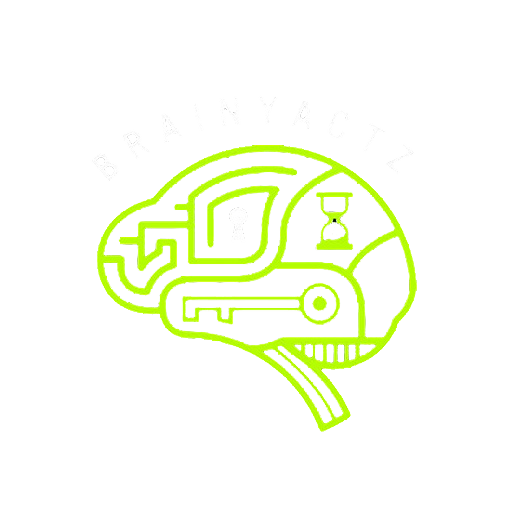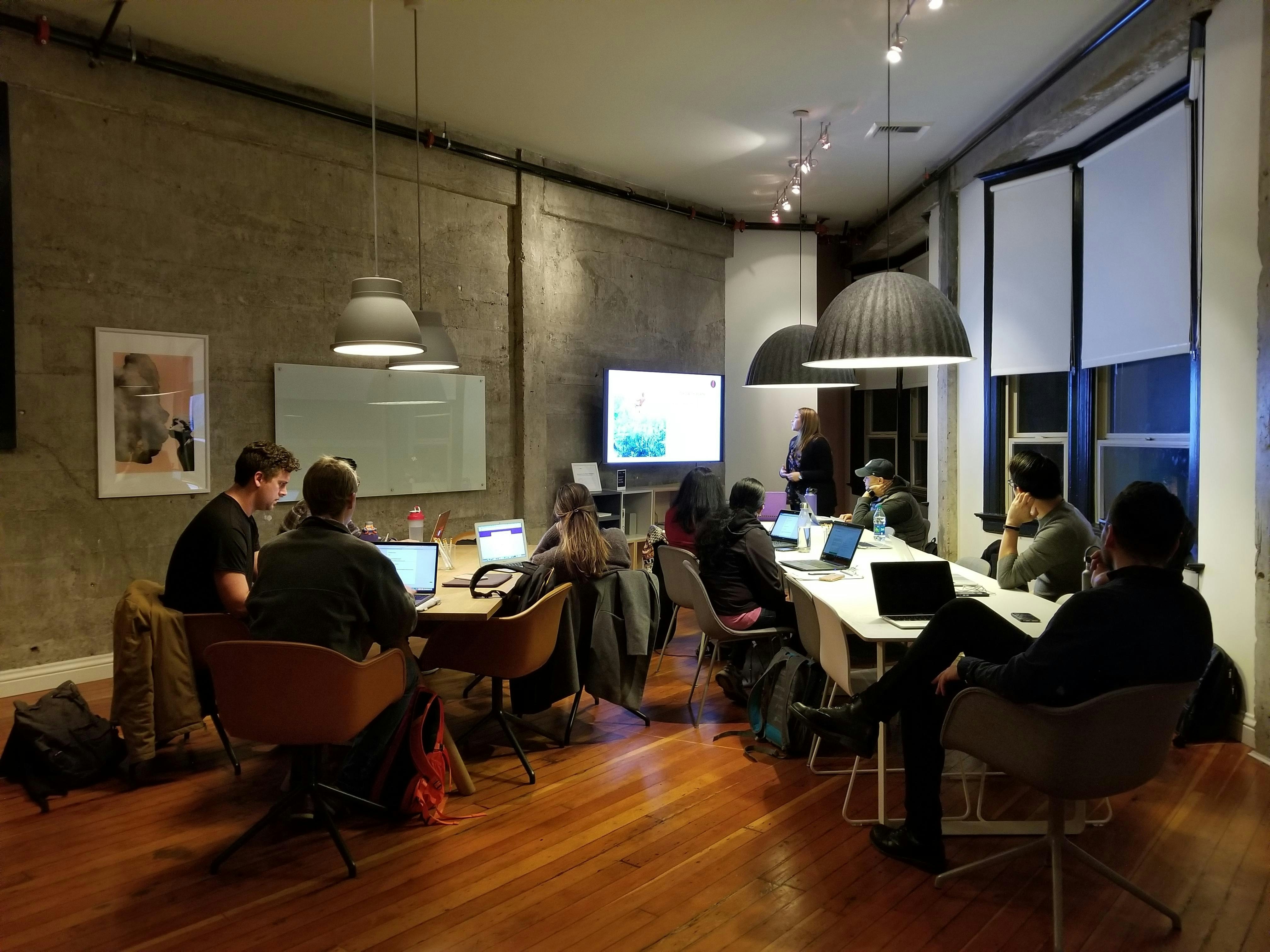Corporate training activities are experiencing a paradigm shift, moving from the classic ‘human knot‘ icebreakers to dynamic, hands-on experiences that leave a lasting impact. Escape rooms, with their intricate puzzles and thrilling narratives, are emerging as powerful tools for honing problem-solving skills and improving mental health.
These interactive scenarios provide more than just value to the participants; they help teams align with the company‘s broader goals through a shared adrenaline-fueled adventure. In this compelling realm, mistakes become lessons, and achievements become memories that translate into real-world teamwork enhancement.
Keep reading to uncover how these immersive experiences can transform standard corporate training into an exhilarating journey of collaboration and growth.
Key Takeaways
- Escape Rooms Enhance Real-World Skills Like Teamwork and Problem-Solving
- Real-Time Data Analysis and Feedback From AI Elevate the Training Experience
- Custom Themes in Escape Rooms Reinforce Company Values and Objectives
- Reflective Sessions Post-Game Solidify Lessons Learned and Encourage Continuous Improvement
- Safety, Inclusivity, and Comprehensive Planning Are Key to Successful Escape Room Training
The Role of Escape Rooms in Corporate Team Building

Escape rooms are swiftly becoming vital in corporate training, with increasing companies harnessing their potential to bolster teamwork and productivity. Far from just a trend, these experiential puzzles drop teams into thematic scenarios that demand cooperation, clear communication, and innovative problem-solving—the foundational elements often missing from a professional workplace setting.
The basics of escape room training help staff members work better together. This immersive approach reflects the dynamics of a busy kitchen, where each role is crucial to creating a successful dish. Unlike traditional training methods, escape rooms put these concepts into action, making learning an unforgettable adventure and placing the brand’s most valuable assets—its people—at the heart of the experience.
The Basics of Escape Room Training
Escape room training involves teams working together to solve puzzles and complete tasks within a set time limit. This immersive experience encourages participants to think critically, communicate effectively, and collaborate closely. Each room is designed with specific themes and challenges that mimic real-world scenarios. This engaging environment helps teams develop problem-solving skills in a fun and interactive way.
Key Benefits for Teamwork and Communication
Escape room training significantly enhances teamwork by requiring participants to cooperate and leverage each other’s strengths. It fosters open communication as team members must share information and ideas to progress. The time-sensitive nature of the challenges builds trust and reliance among team members. This collective effort ultimately strengthens team cohesion and improves overall workplace dynamics.
Why Escape Rooms Surpass Traditional Training Methods
Escape rooms offer a dynamic and engaging alternative to traditional training methods. They provide hands-on, experiential learning that is both memorable and impactful. Unlike conventional training, escape rooms keep participants fully engaged and motivated. The real-time problem-solving and immediate feedback in escape rooms ensure that skills learned are readily applicable in real-life situations.
How Escape Rooms Enhance Problem-Solving Skills

Escape rooms provide an immersive environment where participants must solve complex puzzles under time constraints, honing their critical thinking and creativity. These scenarios require strategic planning, resource management, and adaptability, skills crucial in real-world situations. The hands-on experience encourages methodical problem-solving and innovative thinking.
The collaborative nature of escape rooms fosters teamwork and effective communication. This unique approach to learning ensures that participants can apply these enhanced problem-solving skills in both personal and professional settings.
Real-World Skills Developed in Escape Scenarios
Escape rooms simulate real-world challenges, requiring participants to apply critical thinking and creative problem-solving. These scenarios help develop skills such as strategic planning, resource management, and adaptability. By navigating complex puzzles and unexpected twists, participants learn to approach problems methodically and think outside the box. This hands-on experience translates to improved decision-making and problem-solving abilities in professional settings.
- Scavenger hunt experiences in an escape room mirror the urgency and resourcefulness needed for online research.
- Singing at a karaoke event correlates with the impromptu resourcefulness used in resolving work conflicts.
- Intelligence is pooled from all participants, influencing group outcomes as it does in effective team debates.
The Neuroscience Behind Effective Learning in Escape Rooms
Escape rooms leverage key principles of neuroscience to enhance learning and retention. The immersive and interactive nature of escape rooms engages multiple senses, stimulating the brain’s neural pathways. The excitement and urgency of the scenarios trigger the release of neurotransmitters like dopamine, which enhances focus and memory. Additionally, the collaborative aspect promotes social learning, reinforcing new skills through group interaction and feedback. This combination makes escape rooms a powerful tool for effective, lasting learning.
Creative Corporate Training Activities Within Escape Rooms

Designing mystery-solving adventures, integrating company values into puzzles, and creating custom themes are innovative ways to use escape rooms for corporate training. These activities engage employees, foster teamwork, and reinforce company principles in an exciting, hands-on environment.
As technology advances, next-gen escape rooms will offer even more immersive and personalized experiences, making them a powerful tool for modern corporate learning.
Designing a Mystery-Solving Adventure
Creating a mystery-solving adventure in an escape room involves developing intricate storylines and challenging puzzles that require teamwork and critical thinking. The adventure is designed to reflect real-world scenarios, encouraging participants to think on their feet and collaborate effectively. Each clue and task is crafted to engage team members, fostering a sense of accomplishment as they progress. This method provides an exciting and immersive training experience that builds problem-solving skills and strengthens team cohesion.
Integrating Company Values Into Escape Room Puzzles
Integrating company values into escape room puzzles reinforces corporate culture while enhancing team skills. Puzzles can be designed to reflect the company’s mission, vision, and core values, making the experience both educational and relevant. By solving challenges related to their workplace values, employees gain a deeper understanding and appreciation of their organization’s principles. This alignment ensures that the training is not only fun but also meaningful and impactful.
Custom Themes That Engage and Inspire Teams
Custom themes tailored to a company’s industry and goals can significantly enhance engagement and inspiration. Whether it’s a high-tech heist, a medical mystery, or a marketing challenge, themes that resonate with employees’ daily work make the training more relatable and exciting. These unique, themed experiences motivate participants to immerse themselves fully in the challenges. Customized escape room themes ensure that the training aligns with corporate objectives while providing a memorable and inspiring experience.
Predictions on the Next-Gen Escape Rooms for Corporate Learning
The next generation of escape rooms for corporate learning will likely feature advanced technology and personalized experiences. Virtual reality (VR) and augmented reality (AR) will create even more immersive environments, offering tailored scenarios that mirror specific workplace challenges. AI-driven analytics could provide real-time feedback and insights into team dynamics and individual performance. Additionally, escape rooms will increasingly incorporate gamification elements, enhancing engagement and motivation. These innovations will make escape room training even more effective and relevant for modern corporate needs.
Ensuring a Successful Escape Room Experience for Teams

To ensure a successful escape room experience for teams, careful planning and facilitation are essential. Organizers must select appropriate puzzles and provide clear instructions. Safety measures and accessibility considerations should be prioritized to accommodate all participants. Preparing teams with strategies and setting clear expectations helps them approach the challenge with confidence. A well-organized escape room experience enhances teamwork, communication, and problem-solving skills effectively.
Best Practices for Organizers and Facilitators
Organizers and facilitators should plan the escape room experience meticulously, ensuring clear instructions and seamless execution. Selecting puzzles that cater to various skill levels keeps the entire team engaged. Facilitators should provide hints strategically to maintain the challenge without causing frustration. Conducting a debrief session afterward helps teams reflect on their performance and learn from their experience. Effective facilitation ensures that the escape room is both enjoyable and educational.
Safety Measures and Accessibility Considerations
Ensuring safety and accessibility in escape rooms is crucial for an inclusive experience. Organizers should conduct thorough safety checks and have emergency procedures in place. Rooms should be designed to accommodate participants with disabilities, offering alternative puzzles if needed. Clear communication of safety rules and availability of staff to assist ensures that all participants feel secure. Prioritizing safety and accessibility ensures that everyone can fully participate and benefit from the experience.
Preparing Teams for the Escape Room Challenge
Preparing teams for the escape room challenge involves setting clear expectations and providing some basic strategies. Brief teams on the importance of communication, collaboration, and time management. Encourage participants to identify and leverage each other’s strengths. Providing a quick overview of typical puzzles can help ease initial anxiety. Proper preparation ensures that teams are ready to tackle the challenges and maximize the learning experience.
Conclusion
Escape rooms provide a dynamic corporate training environment, enabling teams to build essential skills through interactive challenges and collaborative problem-solving. By blending fun with professional development, they forge stronger communication, resilience, and a united team spirit far more effectively than traditional training methods. The tailored experiences promote continuous learning and offer measurable teamwork and strategic thinking improvements. As a result, escape rooms are redefining team-building exercises, turning them into memorable and impactful opportunities for professional growth.

